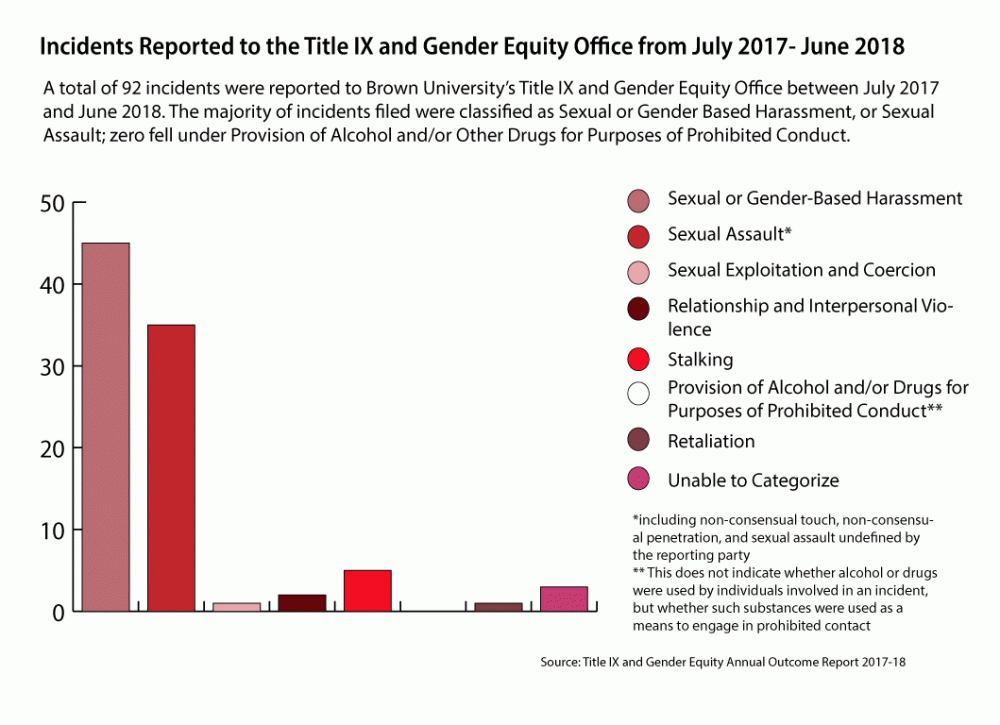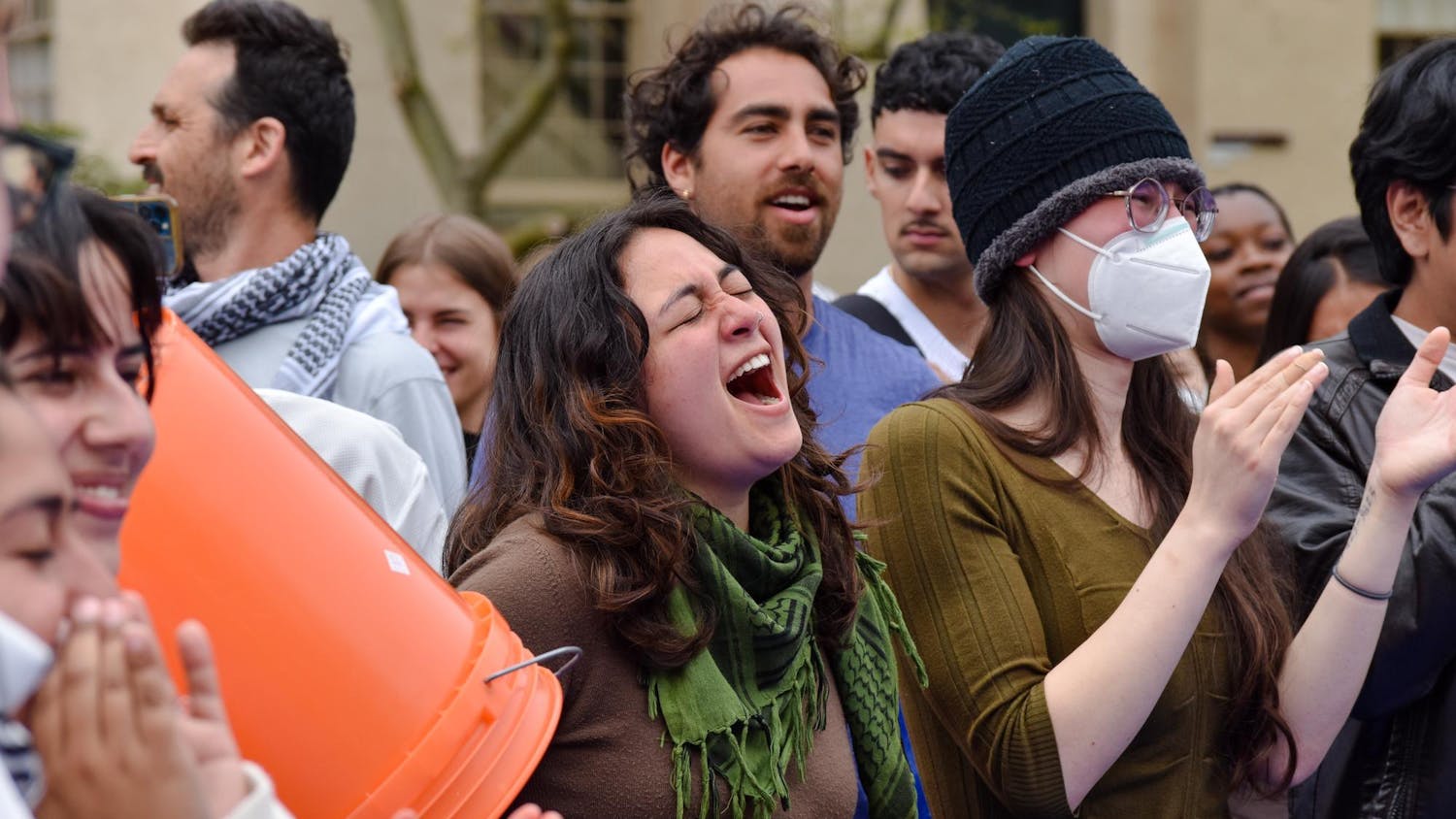The Office of Title IX and Gender Equity released its Annual Outcome Report Friday, revealing an increase in reported incidents compared to the previous year.
The report discloses statistics about the numbers and types of referrals and reports made to the office from July 1, 2017, to June 30, 2018. In that time frame, 92 incidents were reported to the Title IX office, an increase from the 59 incidents reported the year prior, The Herald previously reported.
Of the 92 reported incidents, 45 were classified as sexual or gender-based harassment and 35 were categorized as sexual assault. Both figures increased from the previous year. Five incidents of stalking were also reported to the office.
Other categories of reported incidents include interpersonal and relationship violence, sexual exploitation and sexual coercion, retaliation and provision of alcohol and/or other drugs for purposes of prohibited conduct. The report also recorded incidents that the office was unable to categorize.
Those who reported the incidents included “survivors of sexual violence, third parties who witnessed or were concerned for another individual dealing with the effects of sexual violence and individuals designated as ‘responsible employees,’” according to the document.
Responsible employees are required to share information with the office about potential violations of the Title IX policy.
“The prevalence of sexual harassment, sexual violence and gender-based inequity remains a problem for campuses nationwide,” the report stated. The “increase in individuals seeking support” is an “indicator that community members are aware of the available resources and services.”
As the Title IX office does not investigate reports without a complaint resolution request, fifteen individuals out of the 92 reported incidents “used Brown’s informal or formal procedures to address allegations of potential violations,” according to the report.
In addition to an investigation, the formal procedure can involve a hearing and a finding. Alternatively, the complainant can also request an informal resolution, which does not include an investigation, hearing or a finding. In such instances, the complainant will propose the terms and agreements for a resolution.
Of the 15 informal or formal complaints, 10 focused on sexual assault and four dealt with sexual or gender-based harassment.
Among the complaints categorized as sexual assault, four cases resulted in an informal resolution between the parties. Two cases of sexual assault resulted in a finding of responsibility, while three ended with a finding of not responsible. One case was withdrawn.
The report noted that each complaint may have “included more than one allegation of prohibited conduct.”
The report also noted the office’s progress in implementing recommendations from the Sexual Assault Task Force, which concluded its work in 2015 and consisted of students, faculty and staff members.
According to the report, the task force’s recommendations fell into three categories: “training development, accessibility of information and assessment.”
During the 2017-18 academic year, the Title IX office “facilitated 50 Responsible Employee Reporting” training workshops. They also increased their outreach on campus through engagement with senior leadership and faculty members, as well as undergraduate, graduate and medical students.
The University has also “added staffing resources to the Office of Institutional Equity and Diversity and the Title IX and Gender Equity Office” to strengthen its “response to referrals and reports made to the office” and to increase their “capacity for case management and ongoing support.”
The report also mentioned the Campus of Consent Bill, which the Undergraduate Council of Students passed in January 2017, The Herald previously reported.
The bill requires Sexual Assault Peer Education training “for representatives within funded student organizations,” the report stated. “This initiative is an example of the ongoing efforts to continue conversations on consent, sexual violence and power-based inequity for upper-class students.”
The University is currently administering the Sexual Assault and Misconduct Survey, created by the Association of American Universities. The AAU consists of 62 research universities and strives to “shape policy for higher education, science and innovation … (and) promote best practices in undergraduate and graduate education,” according to the association’s website.
The Title IX office is also considering updates to Title IX complaint procedures and policies to “incorporate the ongoing feedback solicited from participants within the process, ongoing research and best practices and forthcoming changes in the federal regulations governing Title IX,” the report stated.
The Steering Committee on Equity and Diversity, which consists of students and administrators, intends to conduct a “comprehensive three-year review of the Title IX and Gender Equity Office” beginning this summer.
In addition to overseeing the University’s handling of issues around disability and race, the Steering Committee will take on the work of the now-dissolved Title IX Oversight and Advisory Board, The Herald previously reported.
Title IX Program Officer Rene Davis could not be reached for comment by press time.

ADVERTISEMENT




